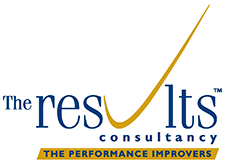 In a typical working week professionals conduct several discussions, some of which hold the potential for new work opportunities to be identified and won. Such conversations include those with clients, potential clients, colleagues, intermediaries/referrers, past clients and other people in a professional’s network.
In a typical working week professionals conduct several discussions, some of which hold the potential for new work opportunities to be identified and won. Such conversations include those with clients, potential clients, colleagues, intermediaries/referrers, past clients and other people in a professional’s network.
Spotting the potential new work opportunity is just one part of the journey though. To ensure it does indeed convert into an instruction, it’s crucial that both the professional and the contact agree on, and give their commitment to, the next steps.
Adopting your contact’s perspective
To propose steps that your contact will support, the start point is to fully understand the issues at play for them. What, for example, are they currently trying to accomplish, and by when? What goals, strategies and targets are influencing their opportunities, challenges and risks and occupying their time and focus?
Understanding the broader issues, influences and priorities for your contact will help you to:
- Plan and ask insightful questions that give you a more detailed picture of their current situation
- Identify what potential solution may be best for them
- Articulate how you can help, in a way which will appeal to them
- Anticipate and successfully overcome any reservations they may have
- Propose next steps which they agree to, and actively support
During the course of a conversation, it’s not always easy to spot opportunities ‘on the hoof’ and then come up with a persuasive solution. The more you can prepare for the discussion (for example checking what your contact’s and their organisation’s latest news, sector trends etc are), the more your conversation topics and questions will resonate with them.
Understand the issue fully before proposing
The consultative approach here is to avoid misaligning with your client by politely probing with good questions, playing back your understanding, and clarifying where appropriate. If your contact feels you have a good grasp of their situation they’ll be more receptive to the insight you go on to share. So summarise your understanding before you propose suggested ways you can help, and the associated next steps.
Impressive propositions
In proposing that solution to your contact, bear in mind that certain ones are likely to appeal more than others. The greater the gain for them from your suggestion, the more readily they’ll support it. Consider these more popular propositions…
- New business opportunities or new contacts who will be useful to them
- Ideas and approaches that are working for others (tell them something they don’t already know)
- Share relevant market knowledge and trends, to help them see the bigger picture
- Highlight ways they can make or save money, manage their business more effectively and/or reduce hassle
Wherever possible back up your insight, ideas and suggestions with examples or case studies. This will reassure and impress your contact you have a proven track-record and reduce their concern of potential risks.
Be prepared to deal with their questions and concerns
It’s unlikely that your contact won’t have questions and concerns about what you are suggesting. The more successful professionals expect this and have previously thought through or practised persuasive responses. Again, having examples of how your proposed idea or approach has helped others greatly assists in the persuasion process.
Make the next step easy
Whilst you want the contact to commit to the next step, it will be easier for them if it doesn’t constitute a sizeable task. By all means build in an element of you and them both doing something (you do want to check their commitment is genuine), but make their input quick and simple to accomplish. It is worth reiterating to them the benefits they, as well as their organisation, are likely to gain as a result of the overall approach you’ve proposed. If they see a distinct advantage from what you’re suggesting they’ll be more active in their support.
Summary
Professionals conduct several discussions each week which hold the potential for new work to be won. Their success of a) spotting the opportunity and b) converting it, largely rests on how well they prepare for the conversation, and how well they handle it. As we’ve shown here, the more insight you can amass about your contact’s situation, the greater your chances of putting forward a persuasive proposition of help…. and gaining their support to progress further. Don’t underestimate the benefits preparation and practise can bring.
So why not consider the conversations you are due to have with contacts this week? What will you do to prepare for and manage that conversation?
Can we help?
For more help in spotting and winning new work from everyday discussions, contact the team to learn more about our training, coaching, webinars and e-learning solutions.


